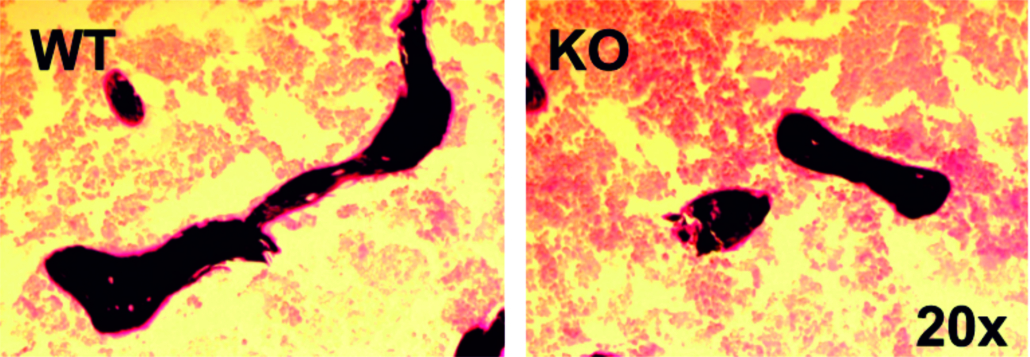
Switch for osteoporosis and obesity
German researchers have found a molecular switch that determines whether mesenchymal fibroblasts differentiate into fat- or bone-forming cells opening the avenue to modulation of the processes.
The research group of Anja Saalbach at University of Leipzig, Germany, reported that altering levels of the Thy-1 protein disrupts the balance between formation of bone and fat tissue in mice. While Thy-1 (CD90)overexpression triggers bone formation on cost of fat formation, depletion of the protein factor led to obese mice with fragile bone structure. Disruption of the fine-tumed balance between the formation of new bone tissue and fat stores in mesenchymal fibrotic tissue seems to trigger conditions such as Cushing syndrome and bone disorders such as osteoporosis, suggesting that targeting the disruption could be a viable therapeutic strategy for these diseases.
In patients with either obesity or osteoporosis, the researchers found that Thy-1 concentrations were reduced in blood plasma samples indicating that Thy-1 measurements could serve as a tool for monitoring bone quality.




